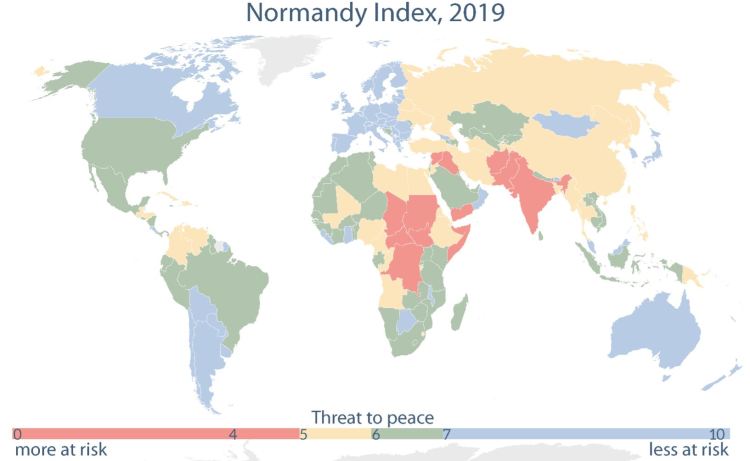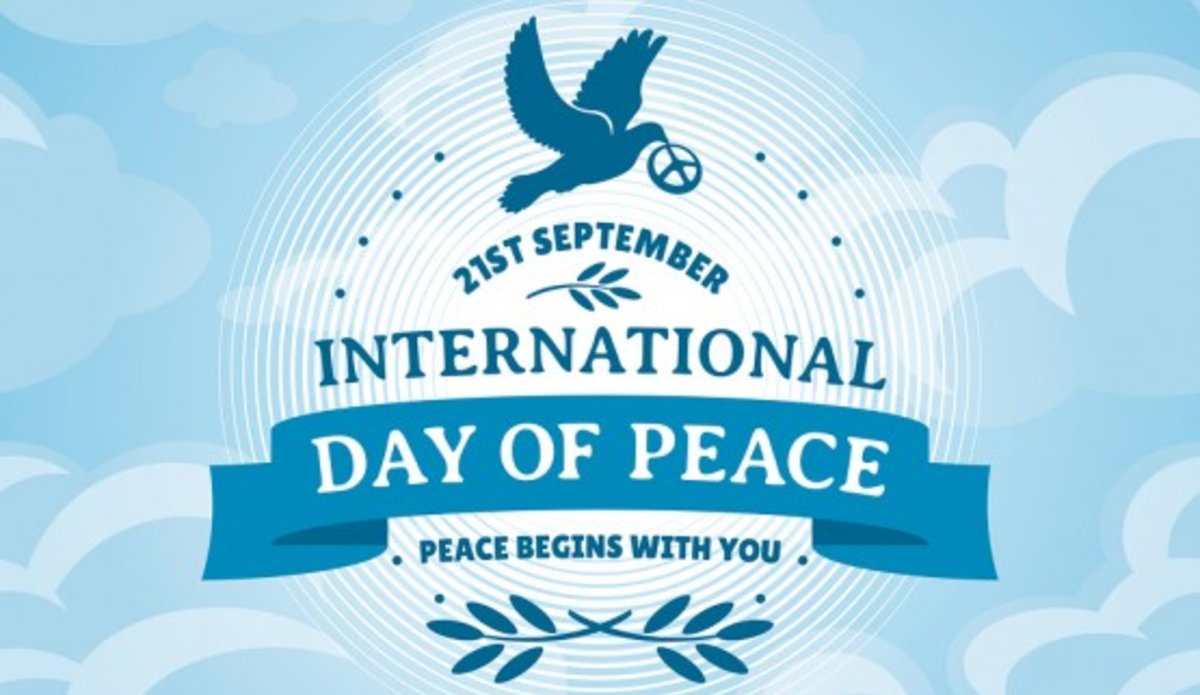 Written by Philippe Perchoc,
Written by Philippe Perchoc,
On 21 September, we celebrate ‘International Peace Day’, declared by the General Assembly of the United Nations. This is an important date for everyone, but especially for the European Union, which from its basis as a project of perpetual peace among its members, has become one of the main promoters of peace in the world.
A successful peace project
Almost 70 years after the launch of the original EU project, this ‘Pax Europeana’ has delivered a ‘European common good’ in terms of democracy and citizen participation, mobility, economic prosperity and security. Indeed, the EU’s very existence can be said to act as a guarantee of peace on the continent, through the creation of the world’s most integrated regional network of cooperation, as well as the strengthening of supranational institutions that represent European citizens, European states, and the European general interest.
The EU’s major contribution to peace was recognised when the Nobel Academy commended the EU for having ‘over six decades contributed to the advancement of peace and reconciliation, democracy and human rights in Europe’. The EU is the only international organisation outside the League of Nations/United Nations system to have been awarded the Nobel Prize (in 2012).
EU measures in favour of peace are driven by a positive understanding of peace: that is, as not merely an absence of conflict, but a sustainable multidimensional peace in which wellbeing and combating inequalities are also key. To reach this positive peace, the EU contributes through both internal and external policies. The EU was key in insuring a lasting peace in Northern Ireland, for example. Externally, the EU is an important global player in the field of peace and security. Two key goals of the EU’s Common Foreign and Security Policy are the preservation of peace globally and the strengthening of international security.
Opinion polls show that EU citizens support this EU mission for peace, and a majority would like to see even greater EU engagement in policies related to peace and security.

Measuring and mitigating threats to peace
In 2016, to support EU’s Common Foreign and Security Policy with a shared understanding of the global security situation, the European Union defined a series of common objectives and threats to be faced by the Union through the ‘EU Global Strategy‘.
The recently released Normandy Index is a contribution to the evaluation of these threats to peace. The product of a partnership between the region of Normandy and the European Parliament, it was designed and prepared by the European Parliamentary Research Service (EPRS) and developed by the Institute for Economics and Peace. The index provides a holistic picture of the world through the prism of the pursuit of peace measured against threats explicitly defined in the Global Strategy. It shows that, the European continent ranks highly for peace, with the EU the 8th least threatened player in the world (Norway ranks in first place, Switzerland second, and Iceland third).

The Normandy Index provides a tool to better understand the threats that challenge global peace. It can help policy-makers to evaluate the EU’s activities in different dimensions and to identify ways to act preventively and support countries and regions that are most threatened. It is not a ranking of countries according to their peacefulness, but rather a ranking of identified threats to peace, such as climate change, cybersecurity, terrorism, economic crisis or terrorism, for example.
The EU’s answer to the threat
 Brussels is one of the busiest diplomatic capital cities in the world. The EU is already one of the largest humanitarian donors, as well as a key trade partner for most countries globally. In these fields, EU action complements EU Member State activities.
Brussels is one of the busiest diplomatic capital cities in the world. The EU is already one of the largest humanitarian donors, as well as a key trade partner for most countries globally. In these fields, EU action complements EU Member State activities.
On the ground, the EU has been able to strengthen the nexus between security, development and humanitarian aid through the implementation of comprehensive strategies, for example in the Horn of Africa and in the Sahel. A quarter of all European aid goes to the most fragile states.
In the larger field of peace promotion, the EU was and remains a key player in the negotiations over Iran and, more generally, on fighting the proliferation of weapons of mass destruction. The EU also provides assistance worldwide to mitigate the effects of global warming, or on securing nuclear installations, for example.
Two examples of EU contributions to peace: the Western Balkans and Colombia
In the Western Balkans, EU policy has ‘shifted from one of stabilisation and containment to a much more ambitious policy of ‘positive peace’-building, embodied in the EU enlargement process. To restore normality after a period of dramatic destruction of human and economic capital and to promote the re-establishment of peace in the Western Balkans, the EU has gone beyond disarmament, repairing roads, re-establishing free flows of goods and helping refugees return home. Firstly in Bosnia-Herzegovina, and then in the rest of the region, the EU has advocated a genuine and inclusive ‘positive peace’, comprising reconciliation, respect for the rule of law, free elections, equal political and social opportunities, a free press, civil society participation, economic growth – i.e. acting beyond mere declarations to actually put ideas into practice’.
The EU has been present in Colombia since the late 1990s, ‘when EU foreign policy first developed, coinciding with the internationalisation of the Colombian conflict. The EU approach to supporting peacebuilding in Colombia has been comprehensive, comprising a wide spectrum of soft (civilian) means, and favouring dialogue and cooperation for the resolution of disputes. It has involved a combination of political dialogue (at national, regional and local levels), financial aid (development cooperation and humanitarian aid), and trade relations’.
‘From the beginning of its engagement, the EU has focused on addressing the root causes of the conflict – socioeconomic inequality; human rights violations; armed conflict and illegal activities – through reconciliation efforts (in the form of Peace Laboratories), economic territorial development (through rural integration), and multi-level political dialogue (also within the context of its trade relations). This EU support was key in reaching a peace agreement in 2016’.
Promoting peace: the way forward
In 2019, European citizens elected a new European Parliament, which now proceeds to hear auditions of designated European Commissioners, including those responsible for Common Foreign and Security Policy, enlargement and neighbourhood policy. Together with the Council of the EU, the European Parliament and the European Commission will face the challenges of promoting peace globally in the next five years, against a background of key environment and multilateralism issues.








Be the first to write a comment.